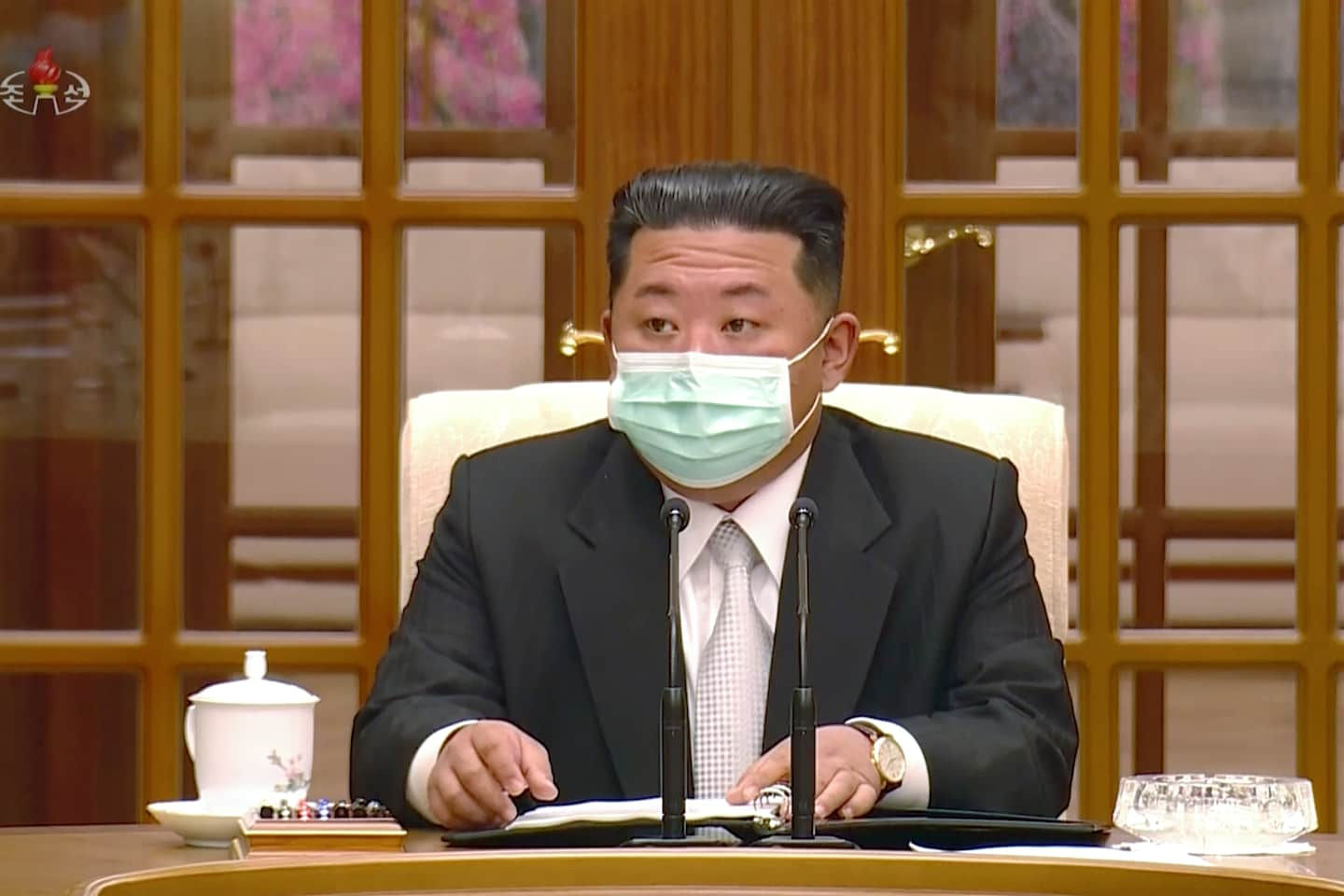SEOUL — North Korea has announced an “explosive” coronavirus outbreak, with six dead and 350,000 infected across the country since April, a day after the country admitted that covid-19 had finally reached it.
North Korea reports 6 deaths amid ‘explosive’ coronavirus outbreak

North Korea’s Central News Agency (KCNA) said Friday that nearly 190,000 people remain in quarantine, while 162,000 of the more than 350,000 who were infected have recovered. The agency said one of the six people who died had tested positive for the BA.2 omicron subvariant of the coronavirus.
North Korean leader Kim Jong Un, who ordered a nationwide lockdown following the announcement of the country’s first official coronavirus infection Thursday, was quoted by KCNA as admitting that the spreading infections were a “grave sign of lapses in our anti-epidemic system.” The authoritarian leader appeared in public wearing a face mask for the first time on Thursday.
For more than two years, as the pandemic raged around the world, North Korea had maintained that it was free from infections. But experts say the virus was likely spreading in the country well before Pyongyang’s official announcement this week.
North Korea’s “zero covid” policy saw it maintain stringent quarantine measures and a closed border over the past two years, which resulted in secondary health and food crises, according to a report by a panel of experts convened by the Washington-based Center for Strategic and International Studies.
“Most North Koreans are chronically malnourished and unvaccinated, there are barely any medicines left in the country, and the health infrastructure is incapable of dealing with this pandemic,” said Lina Yoon, senior Korean researcher at Human Rights Watch.
Pyongyang also has repeatedly rebuffed Seoul’s offers of vaccines and other medical aid. Kwon Young-se, South Korea’s unification minister nominee, said Thursday that the ministry is willing to “actively pursue” aid to North Korea as the omicron variant can worsen the humanitarian crisis there.
Cheong Seong-chang, a North Korea analyst at the Sejong Institute in Seoul, said the omicron variant will cause “chaos” in North Korea for up to a year. “For the time being, however, North Korea is not expected to accept coronavirus aid from the outside, especially the Western world,” he said.
Despite the virus outbreak, North Korea is unlikely to give up its plans to test missiles and nuclear weapons, which can be used to boost public morale amid a health crisis, Cheong said.
On Thursday, hours after declaring its first coronavirus outbreak, North Korea fired three short-range ballistic missiles off its east coast, according to the South Korean military.
Seoul’s National Security Office slammed the tests in a Thursday statement, saying North Korea had “turned a blind eye to the lives and safety of its people and continued ballistic missile provocations” despite the rapid spread of the virus.






